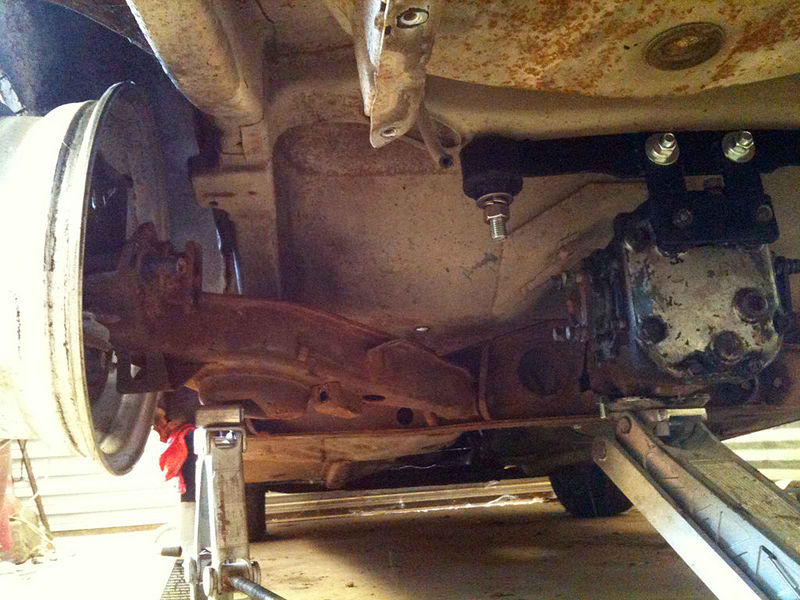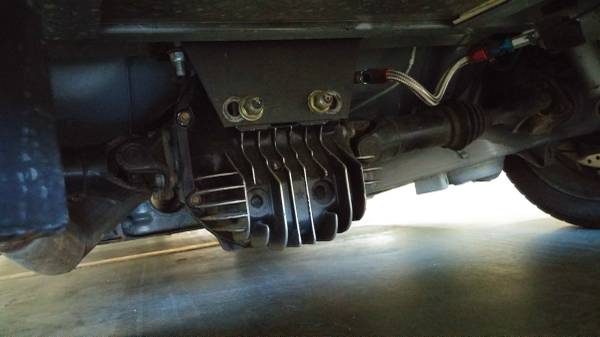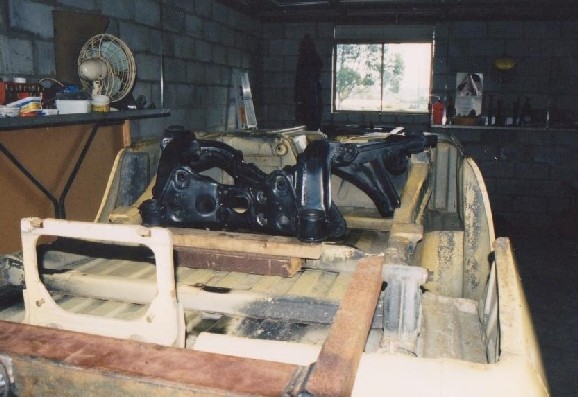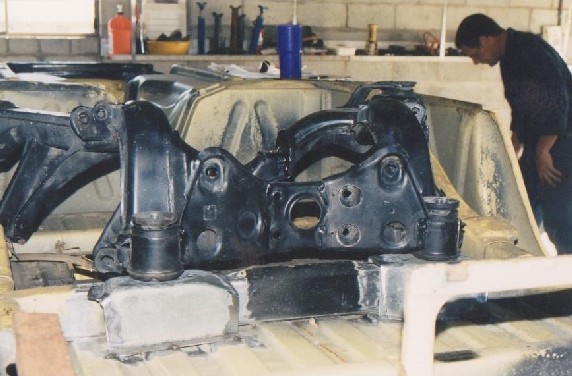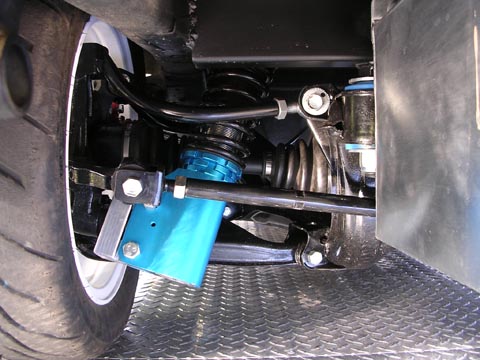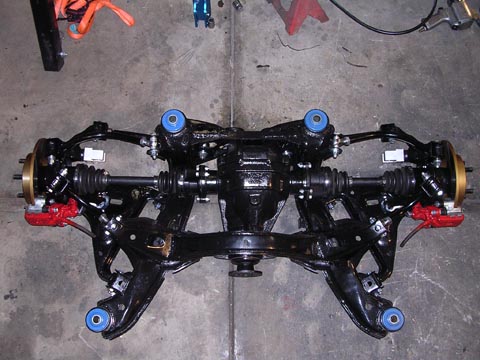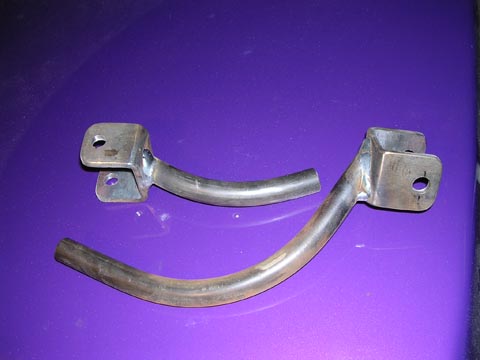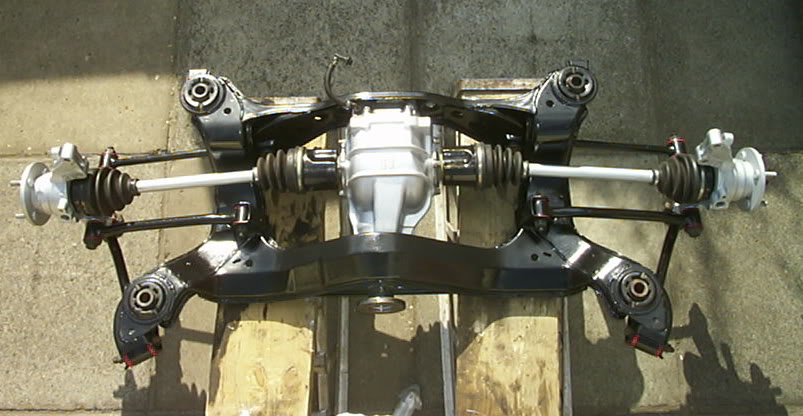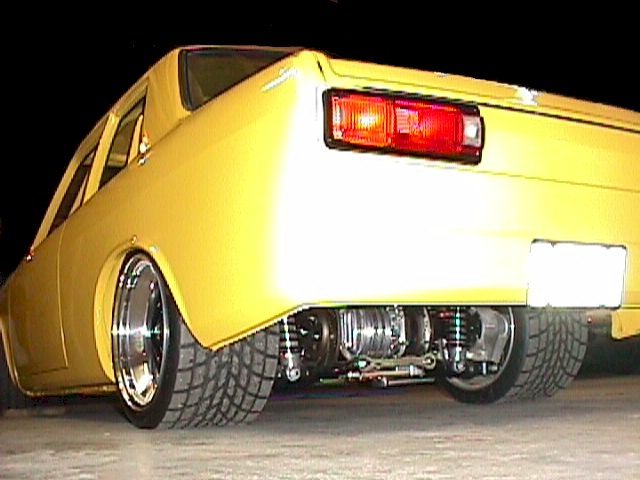| Revision as of 07:44, 24 November 2023 ddgonzal (Talk | contribs) <- Previous diff |
Current revision ddgonzal (Talk | contribs) (->B210) |
||
| Line 125: | Line 125: | ||
| = B210 = | = B210 = | ||
| - | [[B210]] with IRS fitted, with fabricated loop-shaped upper control arms. Is that a DOHC straight-six engine? | + | [[B210]] with IRS fitted, with fabricated loop-shaped upper control arms. And [[SR20DE]] power. |
| マニアックマシーン [Maniac Machine] | マニアックマシーン [Maniac Machine] | ||
| Line 131: | Line 131: | ||
| <br>NEO Classic 1975 DATSUN SUNNY B210 | <br>NEO Classic 1975 DATSUN SUNNY B210 | ||
| <br>ギャラリー ... レストロッド [Gallery ... Resto-rod] "HONEY B" | <br>ギャラリー ... レストロッド [Gallery ... Resto-rod] "HONEY B" | ||
| + | |||
| + | Possibly from {{search|NEO+Classic+magazine|NEO Classic magazine}} ネオクラシック | ||
| [[Category:Suspension Modifications]]{{End}} | [[Category:Suspension Modifications]]{{End}} | ||
Current revision
Independent Rear Suspension (IRS) is superior for comfort and smoothness and since those are not necessary for an economy car platform, Datsun 1200 was instead fitted with less expensive traditional live axle, a non-independent rear suspension. No RWD Sunny came with IRS, so enterprising modders have shown the way and various Datsun IRS systems have been adapted.
Contents |
Overview
IRS is not generally the best for racing. Leaf spring is superior for most racing, however IRS can be setup for racing if the class permits it. IRS will also generally hurt performance as it is heavier than a live axle. But if done correctly the IRS can handle a lot better for track and hill climb use with the ability to adjust rear camber and toe settings.
On the other hand, a live axle kicks the back end right out of track over anything but smooth concrete. So well-tuned shocks are necessary to control bouncing, but even so it's not very smooth on a light car. You can control axle tramp easily, but preventing skittering on bumpy curves is difficult. Since race tracks are smoother than street pavement it is not generally as big an issue for race cars.
Also see: De Dion for low-sprung weight non-IRS suspension.
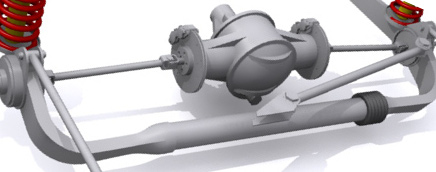
Con
I'm not such a big fan of IRS from a performance point of veiw. particularly the Datsun semi trailing IRS setup like in the above pics:
1) its heavy
2) poor geometry control - ie toe, camber, and roll centre though suspension travel all changes alot, which means all sorts of nasty things happening during cornering - bump steer, weight jacking etc.
3) excessive squat geometry toothe 'fix' adopted by most circuit cars is 1200lb springs to eliminate as much movement as possible. I think the wheel rate of that is a smidge over 300lbs
much easier and better to simply set up a good leaf spring live axle under the back of the 1200. It will work beter and be lighter.
oh, and all those extra unis soak up some power too.
but if you are after comfort or the camber look (which is not actually what you want for the rear for good performance/handling)
POST IRS?
Pro
I finish[ed] my IRS set up for the Datnats, and it performed very well on the track and street.For street driving it was much smoother and nicer to drive with, and on the track it was great. I now can have some toe in on the rear andalso some neg. camber, my ride hight is easily adjusted and so are the shocks. A lot of work to install but i think that it was well worth it.
POST sssute
Datsuns
The Datsun Sunny family was the "economy" model line. Therefore it has the cheapest solution, a live rear axle. All the Datsun rwd subcompacts used a live rear axle. In some ways this is better than IRS: less weight, more reliable, better for hard launches, easier to tune for handling. But certainly it rides harshly, especially in such a light car. In the 1970s more and more economy cars were being fitted with IRS, and so many new FWD designs incorporated it. It is cheap to fit to FWD car, since there is no rear diff.
- Sunny Excellent PB110 and PB210, though upscale with L-series engines, still were fitted with live axles. No IRS.
- The Datsun Bluebird family (510/610/810/910/Maxima) had IRS from 1967, but those were Nissan's bigger models, which eventually encompassed luxury models (810/910). All Bluebird family models except some export assembled versions (Mexico, Australia) and commercials (Wagon) had IRS.
- The P510 (1600) and P610 (180B) had IRS, except for wagons, then Nissan went less expensive again for the 710 (Violet/140J/160J) and A10/HL510 (Violet/Stanza) although some models still came with IRS. These cars were the compacts, a bit larger and more expensive than the Sunny family.
- Z-cars had IRS from the beginning as befitting their status as a world-class sports car.
- Japan-market Violet (710 and A10), though generally export markets did not get these upscale models but instead the base models without IRS. The 160J SSS was fitted with IRS.
- Datsun/Nissan Silvia (S10, S110, S12, S13, S14 and S15) came with IRS, but is too wide for the 1200. It can be narrowed with custom machining and welding.
R160 IRS
Datsun 510 (1600) & 610 model series of the Bluebird family is the source of inexpensive IRS donors. It uses the common Hitachi R160 differential as used by the ubiquitous Subarus.
R200
R200 diff is much like the R160/R180 but a larger size. R200 is used by the 280Z and many other Nissan vehicles.
Silvia
Silvia suspension must be narrowed considerably. Some S110 and S12 and all S13/S14/S15 were fitted with IRS.
datwags
Club member datwags had Maddat fit POST S13 IRS to his 1200 wagon, with the 4 stud pattern:
micksute
Club member micksute was fitting S13 IRS to his 1200 ute:
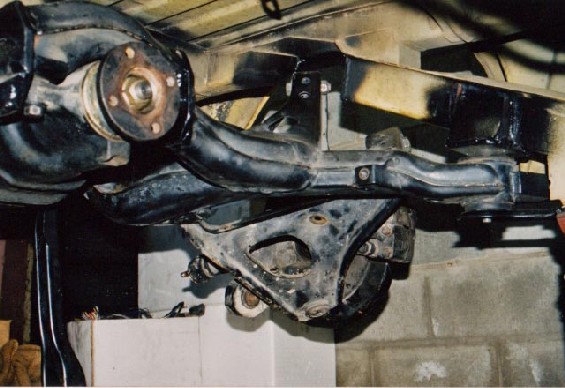
Don't bother, I've done a silvia IRS in a ute and I'm sure it is more trouble than it's worth. If I was to do it all again I'd just go 4 link and a watts....or something like that POST micksute
sssute
Club member sssute, of Maddat fame, POST fitted a conversion for his 1200 ute, using a S14 (Silvia) complete rearend but with upgraded R200 (Z-car) diff.
S14 suspension before and after narrowing by almost 200mm:
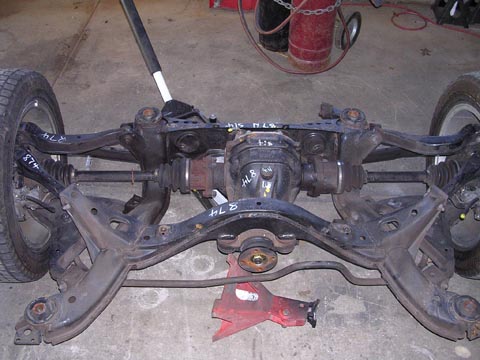
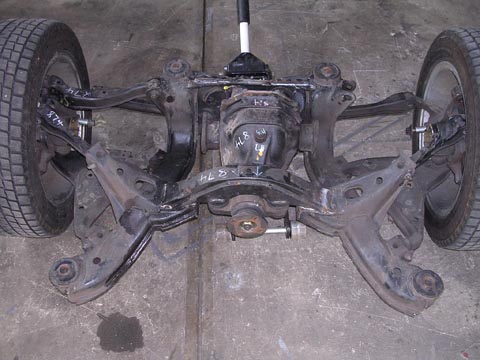

I finish[ed] my IRS set up for the Datnats, and it performed very well on the track and street.For street driving it was much smoother and nicer to drive with, and on the track it was great. I now can have some toe in on the rear andalso some neg. camber, my ride hight is easily adjusted and so are the shocks. A lot of work to install but i think that it was well worth it.
POST sssute
GTiR
Nissan Pulsar N14 GTI-R rear suspension
Arthur Jackson of Stewart Wilkins Motorsports has POST fitted GTiR IRS in a 1200 coupe.
Moto Moto
Rally champion Peter Horsey put a bakkie on a tube-frame chassis running Mitsubishi EVO running gear. This is the Moto Moto Datsunᴳ.
V I D E O KNRC Round 1 2011 (click to view)Subaru
The Subaru Legacy rear IRS has a square frame bolting pattern it should be relatively easy to fit that to the 1200 (compared to some other IRS setups). If you can make the 1200 rear have a flat area, the Subaru subframe will bolt right up (diff, axle, controls arms, etc.). Need a custom bracket for the strut-tops.
Subaru Leone? Width of Leone is 30mm wider than 1200. Legacy/Impreza/Forester is much wider. Looks like custom mustache bar holding up the rear of the diff, and custom links bolting to the front spring-eye brackets. Very custom job.
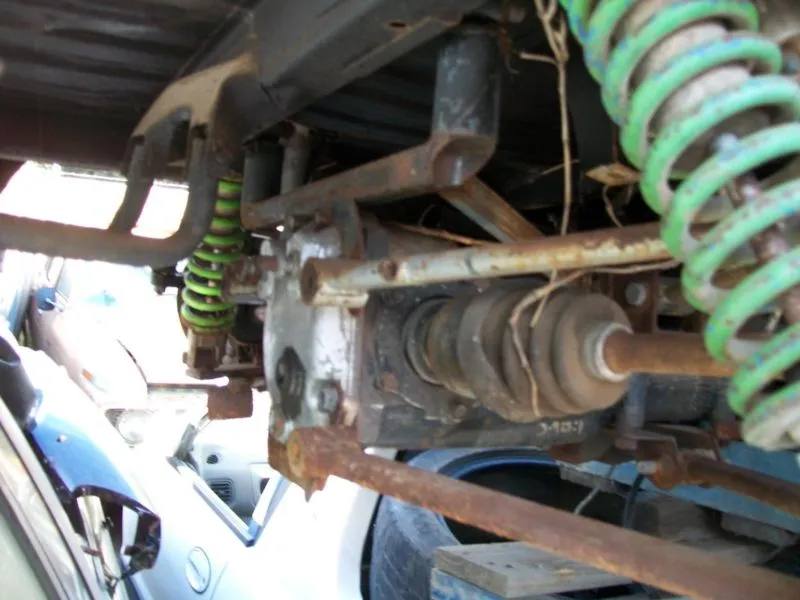
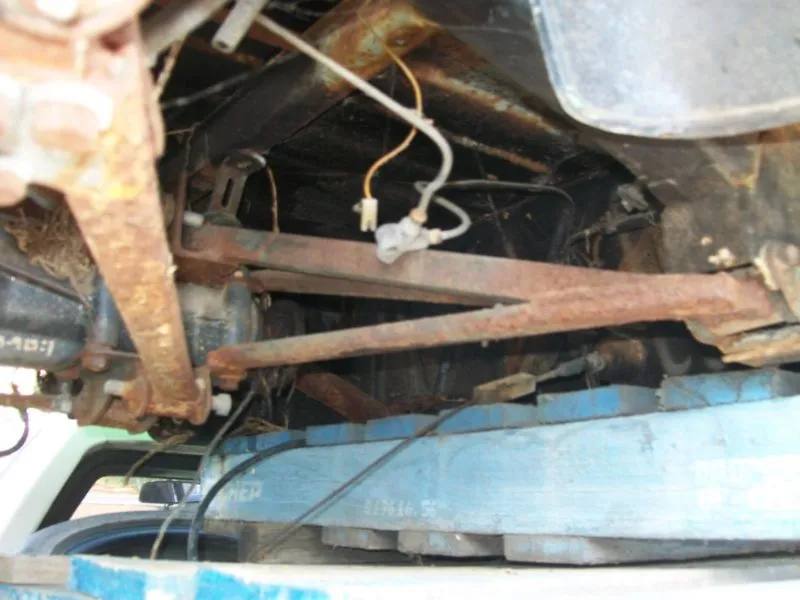
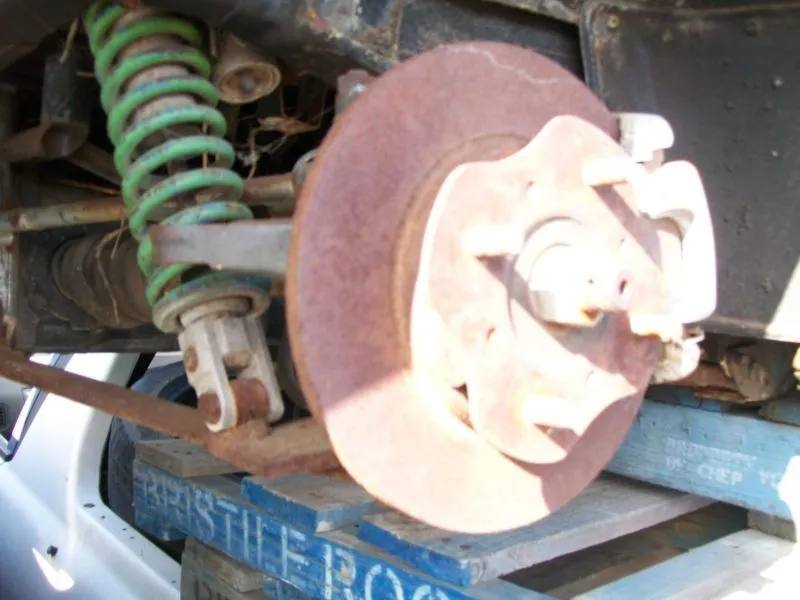
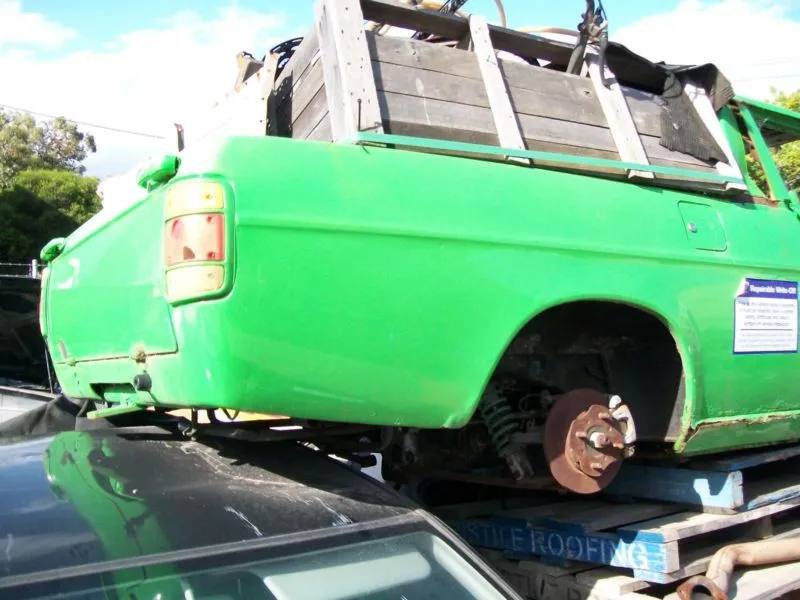
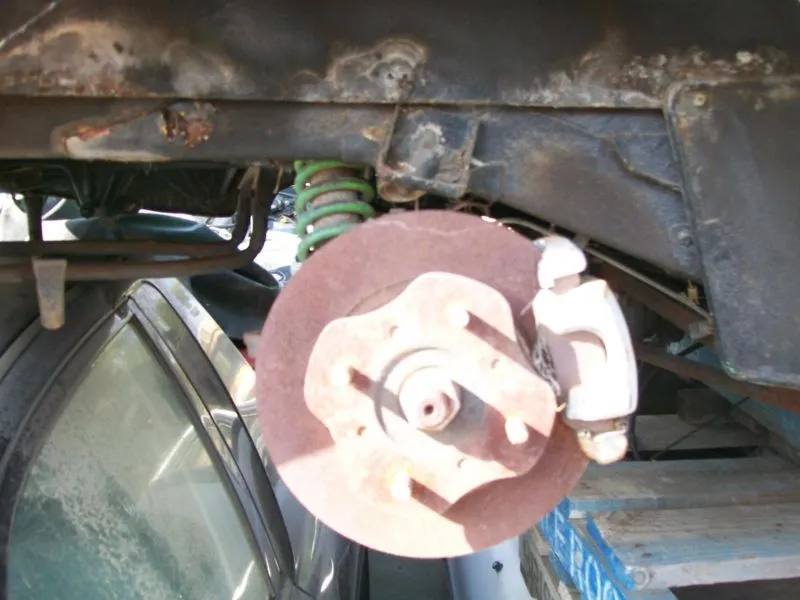


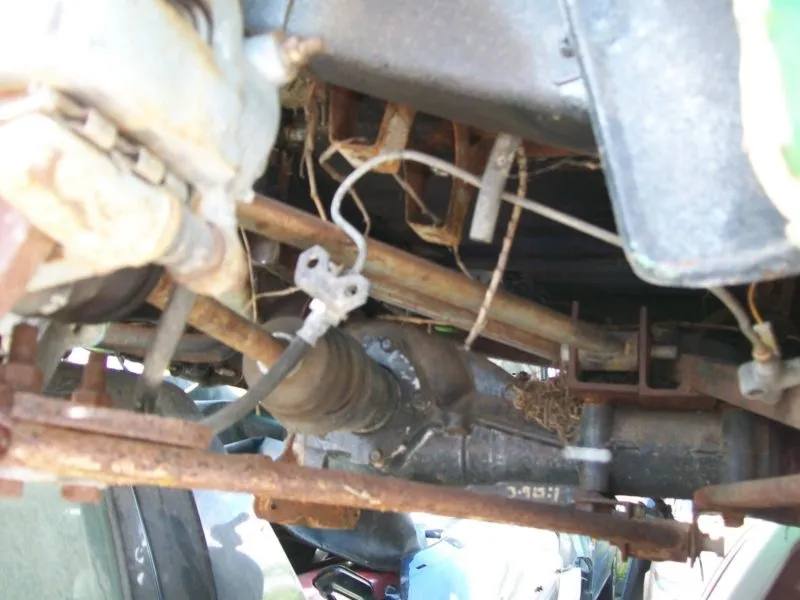
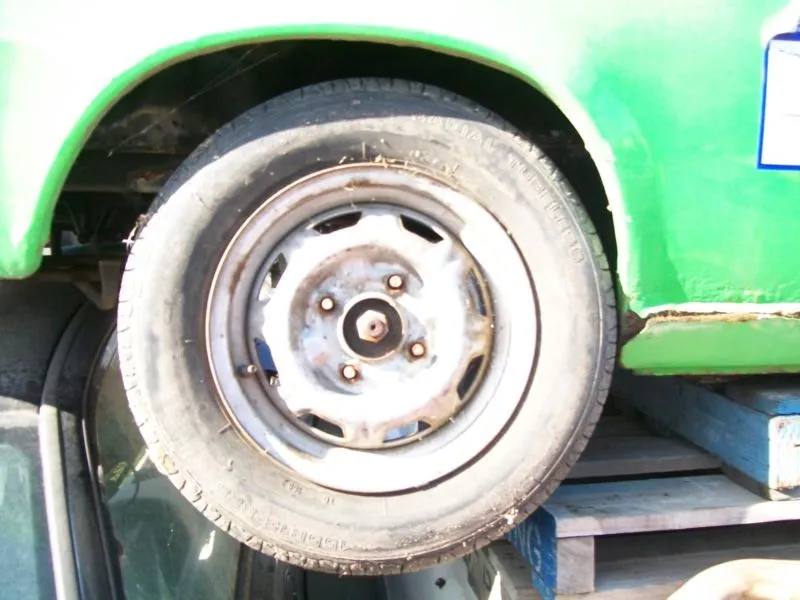

Jaguar
In hot-rod circles, a popular choice of classy rides is E-Type suspension
- Inboard disk brakes
- Light alloy hubs
Other
In a race 1200 with tubular chassis, any kind of suspension can be fitted:
- dattoman_1000 was POST fitting IRS to his Datsun 1000 race car
B210
B210 with IRS fitted, with fabricated loop-shaped upper control arms. And SR20DE power.
マニアックマシーン [Maniac Machine]

NEO Classic 1975 DATSUN SUNNY B210
ギャラリー ... レストロッド [Gallery ... Resto-rod] "HONEY B"
Possibly from NEO Classic magazineᴳ ネオクラシック

![[Datsun 1200 encyclopedia]](/wiki/upload/wiki.png)

